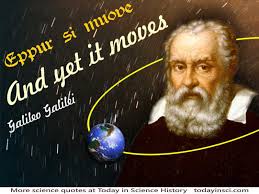GALILEO – NOVA DOCUMENTARY
Published on Dec 5, 2014
The pioneering astronomer and condemned heretic comes to life in this fascinating film version of Dava Sobel’s best-seller, Galileo’s Daughter.
James Watt and his Patent on the Steam Engine
James Robinson speaks at TED
James Robinson, co-author of “Why Nations Fail” gives a Ted Talk:
The History of Patents
Nial Fergson – Why Nations Fail
Why Nations Fail
Niall Ferguson on Why Nations Fail
How are we to explain the ultimate global imbalance which placed a minority of mankind – at most a fifth – in such a position of material and political dominance over the rest (of the world)? It seems implausible that it was due to some innate superiority of Europeans, as the racial theorists of the nineteenth and twentieth centres often argued….Nor can we explain the great divergence in terms of imperialism; the other civilizations did (lent?) of that before Europeans began crossing oceans and conquering. For the historian Kenneth Pomeranz, who coined the phrase “the real divergence”, it was really just a matter of luck. Europeans were fortunate enough to stumble on the so called “ghost acres” of the Caribbean, which were soon providing the peoples of the Atlantic metropoles with abundant sugar, a compact source of calories unavailable to most Asians. Europeans were also fortunate to have more readily accessible deposits of coal… the best answers to the question of what caused the great divergence focus on the role of institutions. … (There are ) two phases or patterns of human organization. The first is…the natural state or “limited access pattern”, characterized by:
Religious Toleration in England
GP: The Industrial Revolution could not have occurred without the development of religious toleration in England. There is a definite historical progression from religious toleration to political toleration to the affirmation of property rights and the enforcement of patents. And there is a paradoxical, dialectic relationship between patents and progress. On the one hand patents give the inventor the incentive to imagine and create. On the other hand, it holds other back from improving upon his invention.
By W.K. Jordan
The Laymen and the Moderates:
The revolutionary period witnessed the triumph of the lay spirit in England. We have previously observed that an important body of lay thought had been developing in England which had embraced the principles of religious toleration and which was disposed to wrest from the hands a divided clergy the solution of the complex problems of the settlement of religion and the treatment of dissent. The outbreak of civil war had the immediate effect of intensifying religious conflict within the realm of losing for the time being the destructive forces of fanaticism and sectarian intolerance. The cool and reasoned persuasions of moderate counsels were for the moment engulfed by a tide of religious extremism. It was again demonstrated that war and the fanaticisms which under-gird it are destructive to the slow but constructive processes by which reasonable and moderate men seek to solve the problems that confront mankind. READ MORE
